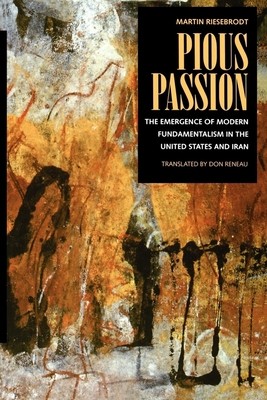
- We will send in 10–14 business days.
- Author: Martin Riesebrodt
- Publisher: University of California Press
- ISBN-10: 0520074645
- ISBN-13: 9780520074644
- Format: 15.2 x 22.7 x 1.6 cm, softcover
- Language: English
- SAVE -10% with code: EXTRA
Reviews
Description
Martin Riesebrodt's unconventional study provides an extraordinary look at religious fundamentalism. Comparing two seemingly disparate movements-in early twentieth-century United States and 1960s and 1970s Iran-he examines why these movements arose and developed. He sees them not simply as protests against "modernity" per se, but as a social and moral community's mobilization against its own marginalization and threats to its way of life. These movements protested against the hallmarks of industrialization and sought to transmit conservative cultural models to the next generation.
Fundamentalists desired a return to an "authentic" social order governed by God's law, one bound by patriarchal structures of authority and morality. Both movements advocated a strict gender dualism and were preoccupied with controlling the female body, which was viewed as the major threat to public morality.
EXTRA 10 % discount with code: EXTRA
The promotion ends in 17d.01:28:15
The discount code is valid when purchasing from 10 €. Discounts do not stack.
- Author: Martin Riesebrodt
- Publisher: University of California Press
- ISBN-10: 0520074645
- ISBN-13: 9780520074644
- Format: 15.2 x 22.7 x 1.6 cm, softcover
- Language: English English
Martin Riesebrodt's unconventional study provides an extraordinary look at religious fundamentalism. Comparing two seemingly disparate movements-in early twentieth-century United States and 1960s and 1970s Iran-he examines why these movements arose and developed. He sees them not simply as protests against "modernity" per se, but as a social and moral community's mobilization against its own marginalization and threats to its way of life. These movements protested against the hallmarks of industrialization and sought to transmit conservative cultural models to the next generation.
Fundamentalists desired a return to an "authentic" social order governed by God's law, one bound by patriarchal structures of authority and morality. Both movements advocated a strict gender dualism and were preoccupied with controlling the female body, which was viewed as the major threat to public morality.


Reviews